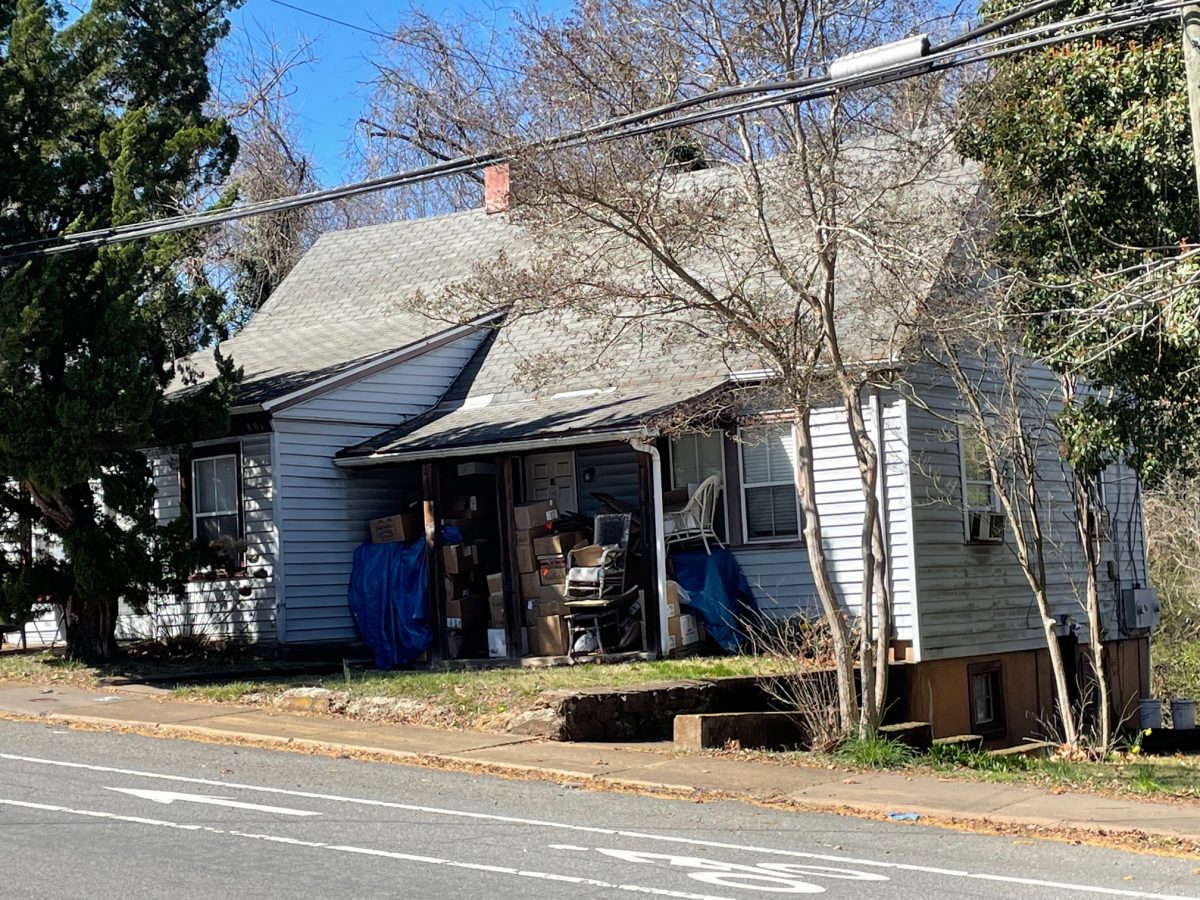As Charlottesville considers an ordinance to create a land bank to generate more affordable housing, one government entity is already providing much of that function.
In addition to owning and operating hundreds of public and voucher-based units across the city, the Charlottesville Redevelopment and Housing Authority has been buying more property to guarantee lower rents for tenants.
“The portfolio was developed to preserve naturally occurring affordable housing units that were at risk of being lost due to natural real estate transactions,” says John Sales, CRHA’s executive director.
Using funding that had originally been approved by City Council for rental vouchers, CRHA bought two duplexes on Coleman Street in August 2022, and a house on Montrose Street that October. Last June, it closed on the $10 million purchase of 74 units known as Dogwood Housing after council agreed to contribute half the funds.
“We then acquired 100 Harris Rd., which is a three-bedroom single-family home, on July 14, 2023,” Sales says.
According to Sales, that transaction kept a long-term tenant, who had been at risk of displacement, in the house. Overall, 68 percent of tenants have incomes less than 30 percent of the Area Median Income. Seventy percent of the units do not have a subsidy associated with them.
“We want to continue serving those families,” Sales says. “What we have been doing for this portfolio is using the voucher problems in [Albemarle County] and the city. We are also assisting families that reach out to us that are unable to get served on the public housing program and the voucher program.”
Having both public housing units, as well as the additional units, gives an economy of scale that has allowed CRHA to hire two full-time exterminators to deal with known pest-control issues.
Sales says the agency is considering selling a duplex located on Harris Street on land zoned for industrial mixed-use.
“It is not in the best place for residential,” he says. “I’ve been talking to my board and they are in support of disposing of it.”
The property has an assessment of $295,300, but Sales says the property could go for between $350,000 and $500,000, and all of that funding would go back into the organization’s portfolio.
When City Councilor Michael Payne asked if the prospective owner could be identified, Sales said CRHA has to put the property on the open market.
“But, they were going to preserve it to expand their business operations and move their headquarters to that location,” Sales says.
To make up the additional residential, CRHA purchased a property in Belmont on Meridian Street last November, which, he says, will be added to the portfolio.
A majority of City Council members say they’ll support the sale of the Harris Street property if it comes back to them for a vote.
“Harris Street ought to be a place where we are encouraging other industrial and commercial kinds of uses,” Councilor Lloyd Snook says.
There are plenty of expenses associated with maintaining so many homes, and Sales says three properties totaling 18 residential units on Ridge Street need new roofs. The CRHA is seeking grants to cover the cost of $50,000 per building, including an application through the city’s share of Community Development Block Grant funds.
Councilor Brian Pinkston told Sales he was glad the city helped make the Dogwood purchase.
“I think this just shows creativity on your part and I am very grateful for the work that you’ve done,” Pinkston said.
Pinkston and the rest of council also agreed in February to purchase 405 Avon St. from CRHA for $4 million. In addition, CRHA has closed on its $2.5 million purchase of the Milgraum building on the Downtown Mall.
